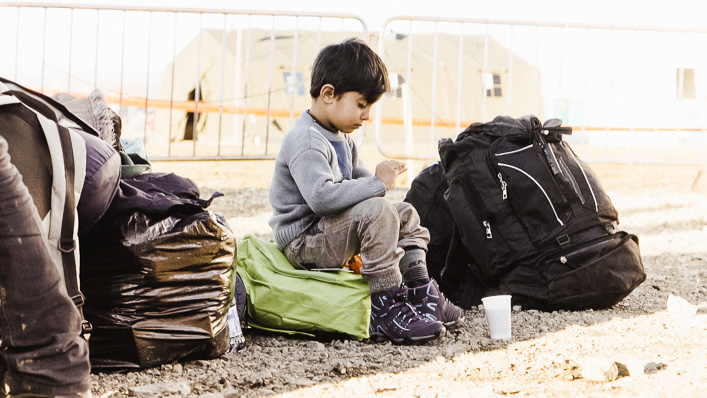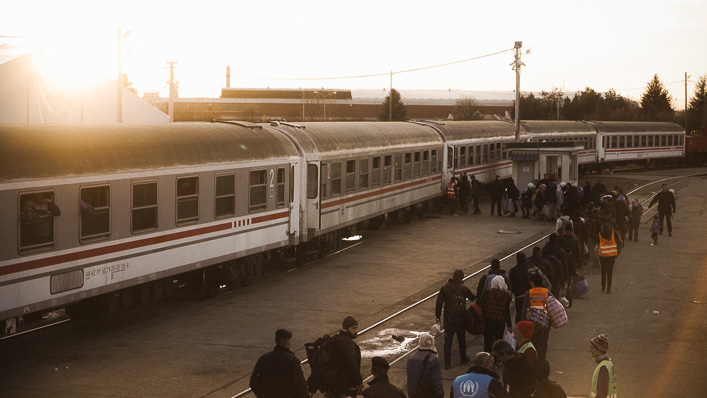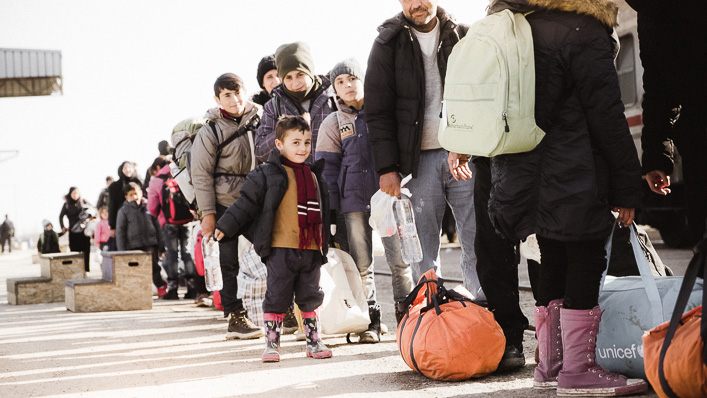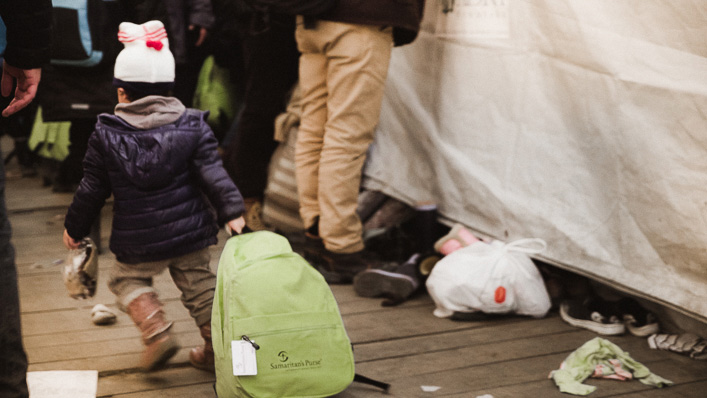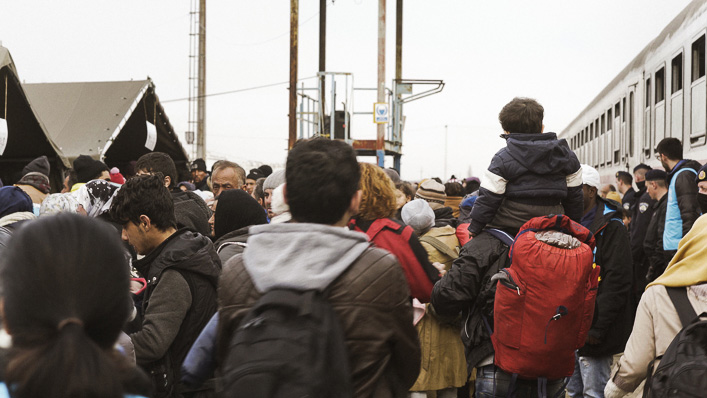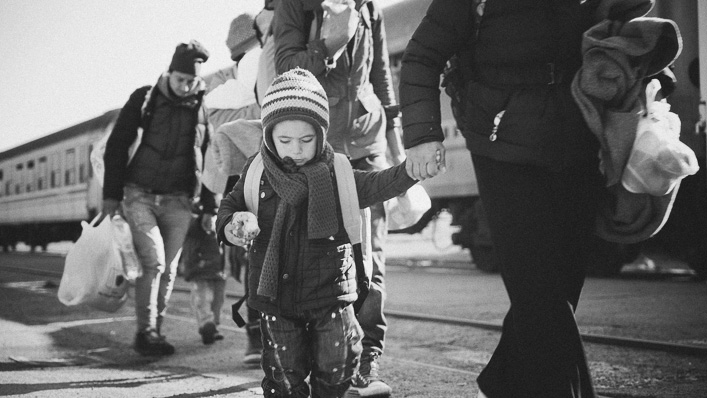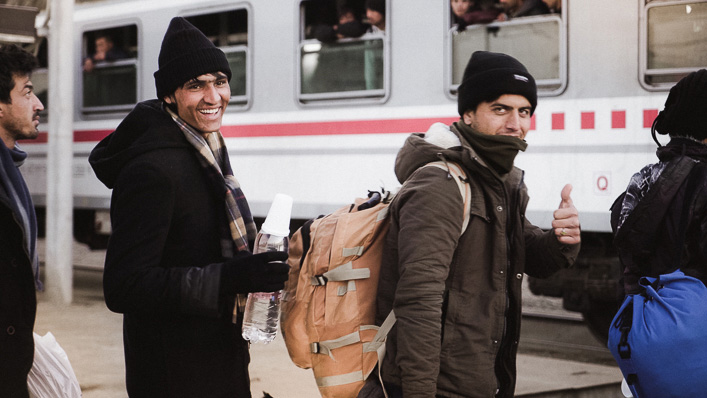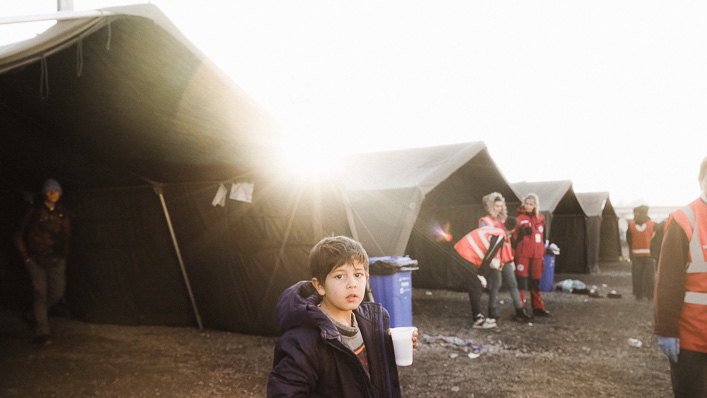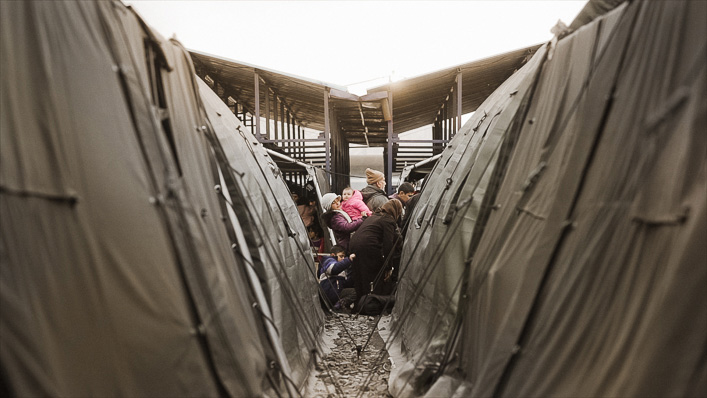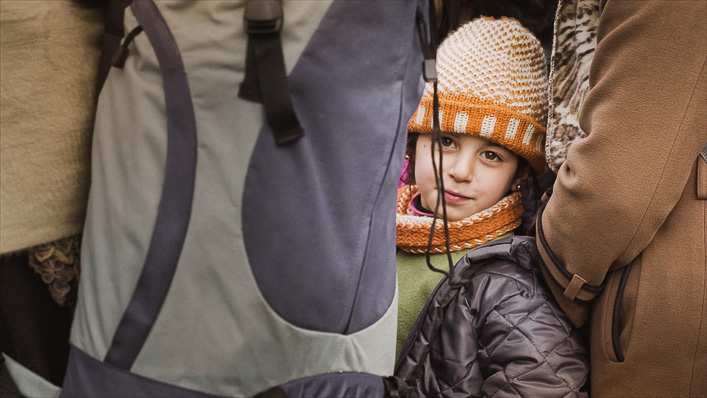(This is part two of a five-part series on Syrian refugees. Read part one here.)
“HERE!” the guard said and pointed to a metal detector.
My delay causes him to point again. Pretty sure this is the only English he knows.
Which happens to be one word more than the Croatian I know.
So much has led up to this point. The months of planning. The mental preparation. The conversations with friends. The researching. The goodbyes to family. The sleepless travel days. The crossing through country borders. All came to this specific moment; the moment theory becomes reality.
We are pointed to an office where we must confirm security clearance. This is where we meet Kata, the Croatian police officer who will escort us throughout the refugee camp.
Kata speaks English.
Thank goodness Kata speaks English.
Kata has a kind smile. One of those smiles where you know she’s a sweetheart, yet could also leave you crying on floor with a broken arm if she ever felt the need to do so.
I made a mental note to stay in Kata’s good graces throughout the remainder of this visit.
“Over here is where they come in on the train,” she points as we walk through the camp. “And here is where they…”
…
They?
My mind went numb.
They…
I’m not sure I heard anything Kata said for the next several moments.
They.
As if an identity has been sequestered to this one specific definition.
They.
A word that instantly separates—pity silently attached.
Don’t get me wrong—Kata is a beautiful person! A woman who has volunteered her free time to help us out. To help these refugees out. I’m not entirely sure I could describe things any better, but it hit me when she said that simple word… “They.” It made me realize, at that moment, that I’ve been viewing these beautiful people—these often misunderstood people—as a “they.”
As if I somehow rank higher on the totem pole of value.
*For the record, from this point forward, “they” will unfortunately still need to be used in these writings. But I hope it will be taken as a word of endearment and respect, not distaste or pity.
We walk through the camp, slowly, soaking in detail after detail. “This is where they are processed and fingerprinted,” Kata explains. “This is where they receive medical attention. Over there clothing, shoes, backpacks, hot tea, etc.”
Then we turn to our right, back towards the train, and walk into a scene my mind will never forget.
Hundreds of people herded into an organized line, every possession their life has to show for, patiently waiting to board a train of which they have no clue the destination. Children with packs on their back they could quite literally fit inside, mothers with eyes which redefine the word exhaustion, and fathers who have no option but to strongly stand with optimistic hope.
Words do not do my emotions justice.
This is a largely misunderstood people group. Their identity, to us from the west, has been molded by a click-bait happy media, and they desperately need a voice to share why and what their reality has become.
I walked into the camp, honestly predetermining what my emotions would be. I’ve been through this before. I’ve done these videos before. Ranging from huts scattered throughout the countryside of Ethiopia to homeless street children in Addis Ababa, to persecuted people groups in Uganda, to incarcerated teenagers in Ohio. I’ve sat and cried with widows piecing together their future, I’ve been taught lessons in faith by orphans with nothing more than a t-shirt and shorts, and I’ve quite literally witnessed a demon prayed out of an eight-year-old boy… Yeah.
But the difference here… this is me.
I’m looking at me.
I’m looking at my family.
Bound together to all they know, the only real possessions left, have now become each other.
I’m looking at my children.
Faithfully following along through this confusing journey. Not quite sure what is going on, or why, but no longer preoccupied with what show to watch next on the iPad, or who stole their favorite toy. No longer demanding hotdogs and mac-n-cheese for every meal. No longer getting in trouble for forgetting to clean up their toys, because their toys didn’t make the cut, their mac-n-cheese either, and the iPad we had to sell to afford the journey.
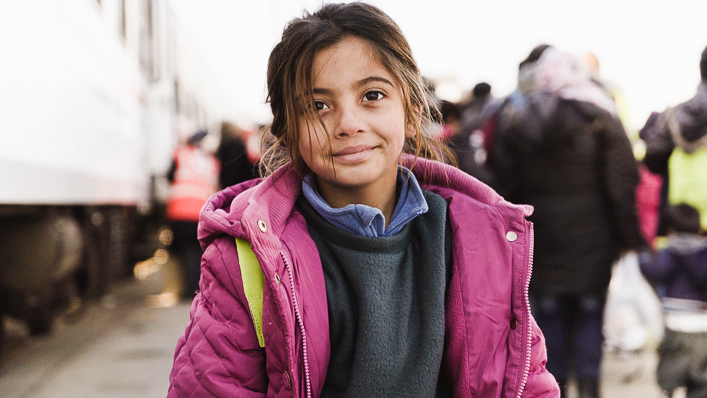
I’m looking at my wife.
A mother’s never changing role, only now operating with an ever-moving base called home. SHE is the home now. SHE is the safety. SHE is the comfort. SHE holds the responsibility of never breaking, yet is always on the edge. The simple truth is that she cannot, too many little eyes are fixed on her.
I’m looking at my bags.
Everything I’ve worked for, up to this point in life, compressed down to a handful of possessions. So much has been earned, so many items bought, so many conveniences secured, so many goals achieved… yet it all has been erased from the preverbal chalkboard called “stuff.” All now stored as a memory, a smearing of white dust.
Did we pack the right things?
Do we have enough money to get there?
Where are we going exactly?
Will we even be allowed in, or will we be turned away?
I’m watching a group of people who, five years ago, lived much the same we way we do in the west. A group of people who, five years ago, had careers, homes, bank accounts, hobbies, and plans for the weekend. A group of people with dreams for their future, and desires for their children’s.
I think it’s easy to separate ourselves from what’s happening out here.
“They” are them and “we” are us, and it’s none of our business to redefine associations. But in all reality, we are human. We all have the same fears, and we all have the same insecurities, and we all have the same ability to feel anxious and feel pride, and elation, and bitterness, and inspiration, and loneliness, and we all get excited, and we all have beating hearts that require blood to move throughout our bodies. There’s not a difference here.
So let’s start seeing it as such.
And let’s start responding as such.
And let’s start caring about other people’s needs just as much as we expect others to care about our own. This experience in a refugee camp is showing me such.
At least, so far it is…
Jon
Jon Morton is a professional photographer based in Dayton, Ohio.


